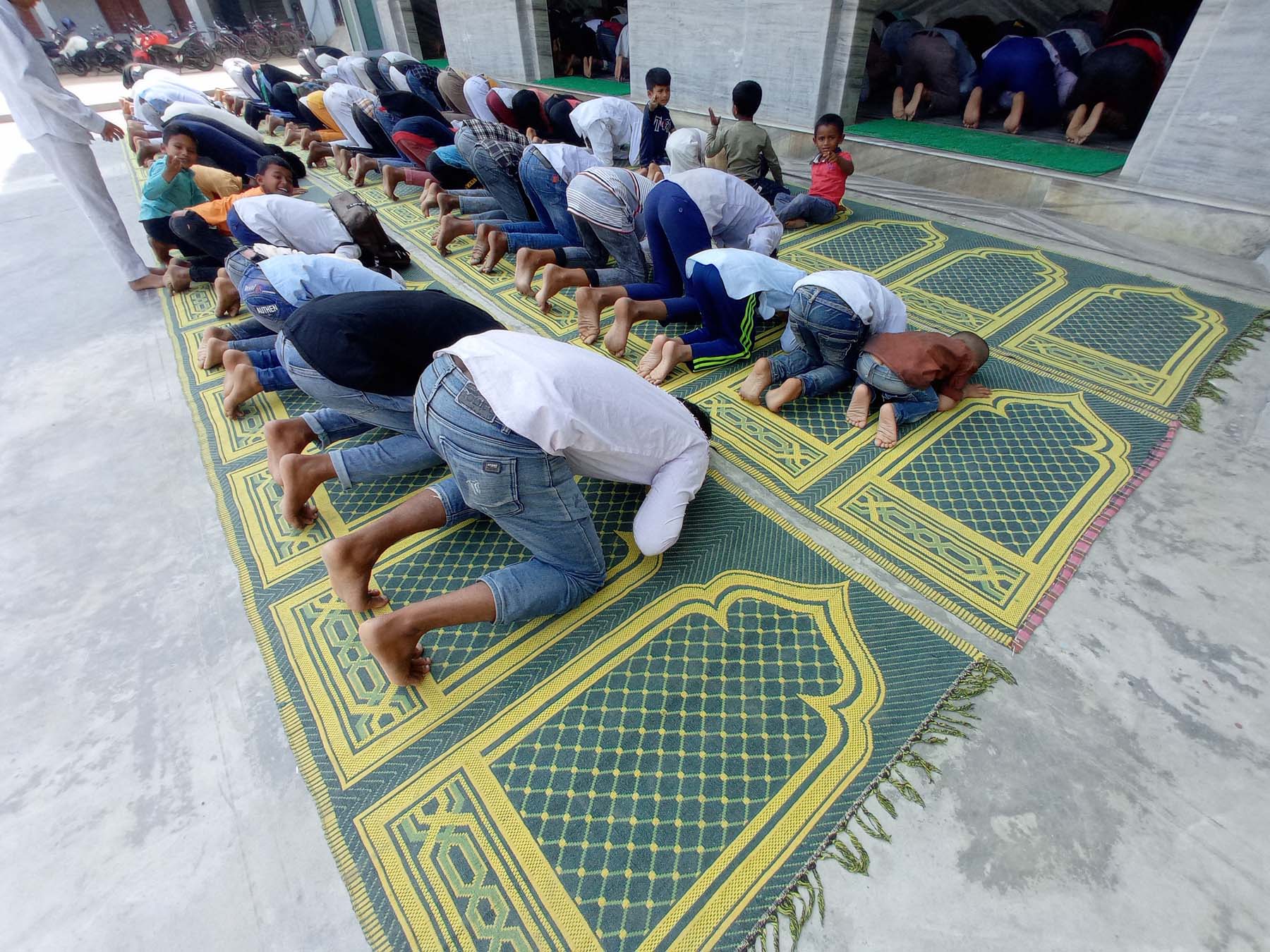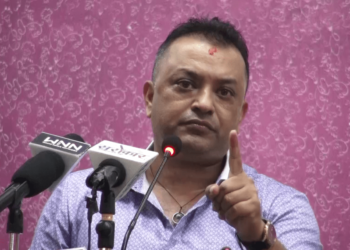Ramadan, observed as the ninth month in the Islamic lunar calendar, is deeply revered by Muslims around the globe.
It is a period marked by a profound communal spirit, heightened devotion, and a collective journey towards spiritual renewal.
This guide delves into the multifaceted dimensions of Ramadan, exploring its historical roots, the scientific merits of fasting, the significance of its last ten days, the relationship between social media etiquette and iftar, the Quranic revelations that define this period, and the enigmatic Night of Qadr. So, let’s learn about this month of blessings!
Historical Essence of Ramadan
Ramadan’s origins are deeply entwined with a pivotal moment in Islamic history, dating back to 610 A.D.
During this time, Prophet Muhammad, in solitary contemplation within the serene confines of the Hira cave near Mecca, received the first divine revelations of the Quran.
This event, occurring on the night known as Laylat al-Qadr, marked the beginning of a new chapter in spiritual history, laying the foundational pillars for the observances and practices that define the holy month of Ramadan.
The Etymology of Ramadan:
The term “Ramadan” itself, derived from the Arabic root “ar-ramad,” resonates with the imagery of the desert’s intense heat.
This linguistic origin poignantly symbolizes the process of spiritual purification that fasting represents.
As the desert sun purges the landscape of all but the most resilient forms of life, fasting also burns away the impurities and sins, leaving behind a purified soul.
Fasting: A Ritual of Purification
Central to the observance of Ramadan is fasting from dawn until sunset.
This practice is not merely an abstention from physical nourishment but a profound act of spiritual cleansing.
Through fasting, individuals can reflect on their lives, cleanse their hearts and minds, and strengthen their connection with the divine.
It is a time for self-discipline, reflection, and renewal, echoing the transformative experience of the Prophet during those influential nights in the Hira cave.
Unlocking Wellness: The Scientific Benefits of Fasting
The fasting ritual from dawn until sunset, a hallmark of Ramadan, extends beyond spiritual purification, offering a range of scientific benefits. Here are the 10 advantages of fasting.
Weight Management and Metabolic Health
One of the most immediate effects of fasting during Ramadan is its role in weight management.
Through fasting, the body transitions from relying on glucose for energy to utilizing stored fat, potentially reducing weight.
This not only helps in reducing body fat but also in improving metabolic efficiency, making the body more adept at utilizing energy.
Enhanced Brain Function
Fasting during Ramadan can also have a positive impact on brain health. Fasting is recognized for boosting cognitive performance through the heightened release of BDNF, a crucial protein involved in neural development and upkeep.
This can lead to improved cognitive functions such as better memory, focus, and learning capacity.
Immune System Boost
The act of fasting can boost the immune system. During fasting, the body initiates autophagy, where cells remove and recycle damaged and old components.
This mechanism revitalizes cells and amplifies the body’s defensive mechanisms, enhancing its capability to ward off illnesses and ailments.
Cardiovascular Health
Observing fasts during Ramadan can notably enhance cardiac wellness by stabilizing blood pressure and diminishing harmful cholesterol levels.
Such improvements lead to a decreased likelihood of heart-related conditions, fostering better health of the cardiovascular system.
Mental Well-being
Beyond physical health, fasting during Ramadan can greatly benefit mental well-being.
The practice fosters mindfulness and self-discipline, helping individuals develop better control over their impulses and desires.
Reducing stress levels and promoting a more disciplined lifestyle enhance mental clarity and emotional stability.
Detoxification Process
As the body shifts from glucose to fat as an energy source, it begins a natural detoxification process.
Cells start autophagy, a self-cleaning process that removes damaged and dysfunctional components, leading to rejuvenated cellular function.
Improved Digestive Health
Taking a break from constant eating gives the digestive system a much-needed rest, allowing for the repair and maintenance of its tissues.
This may result in enhanced digestive function and more effective absorption of nutrients, thereby decreasing the chances of experiencing digestive problems.
Increased Longevity
Emerging research suggests that fasting can increase lifespan by promoting healthier aging.
The mechanisms behind this involve reducing oxidative stress and inflammation, critical factors in the aging process.
Cellular Repair and Regeneration
Fasting initiates a remarkable biological process known as autophagy, a cellular “clean-up” mechanism where cells self-digest and remove damaged and malfunctioning components.
This helps clear out the cellular debris and paves the way for generating new and healthy cells.
These include reduced inflammation, mitigation of age-related cellular damage, and a lower risk of diseases such as Alzheimer’s and cancer.
Tackling Inflammation with Fasting
Fasting effectively reduces inflammation, a root cause of numerous chronic diseases.
It lowers key inflammation markers like CRP, IL-6, and TNF-α, which are linked to arthritis and heart disease.
This reduction is attributed to a decreased intake of pro-inflammatory foods and a shift to fat oxidation during fasting, which generates fewer inflammatory byproducts.
Note: It’s important to note that while fasting has many potential benefits, it’s not suitable for everyone.
Individuals with certain health conditions, pregnant women, and those with a history of eating disorders should consult healthcare professionals before starting any fasting regimen.
The Quranic Revelations: Illuminating the Path in Ramadan
Ramadan’s sanctity is profoundly anchored in the Quran, with its revelation beginning in this blessed month, particularly on Laylat al-Qadr, often described as the “Night of Decree.”
This time provides a special chance for Muslims to strengthen their bond with the sacred scripture through its reading, contemplation, and application in life.
“Indeed, We sent it [the Quran] down during the Night of Decree.” (Quran 97:1)
This verse encapsulates the essence of Ramadan, highlighting the descent of the Quran as a pivotal moment in Islamic history.
The revelations bestowed upon Prophet Muhammad during this time serve as a historical milestone and a perpetual source of guidance for Muslims.
The Quran’s verses, rich in wisdom, provide profound insights into ethical living, spirituality, and the path to righteousness.
“The month of Ramadan [is that] in which was revealed the Quran, a guidance for the people and clear proofs of guidance and criterion.” (Quran 2:185)
This verse further emphasizes the Quran’s role as a beacon of guidance, especially during Ramadan.
The Quranic revelations during Ramadan commemorate a divine occurrence and a living dialogue between the believer and their faith.
The Night Of Qadr: The Pinnacle Of Ramadan
Laylat al-Qadr, the Night of Decree, is a paramount event in Ramadan, encapsulating the essence of divine revelation as it marks the Quran’s descent to Prophet Muhammad.
Esteemed as “better than a thousand months” (Quran 97:3), this night is a profound opportunity for reflection, prayer, and seeking Allah’s forgiveness.
“Indeed, We sent the Quran down during the Night of Decree.” (Quran 97:1)
This verse underlines Laylat al-Qadr’s significance, highlighting it as a period of divine enlightenment and guidance.
It’s a night when the heavens draw closer to the earth, with angels, including Jibreel, descending to acknowledge the believers’ devotion.
“Whoever spends the night of Qadr in prayer out of faith and in the hope of reward, his previous sins will be forgiven.” (Hadith, Bukhari and Muslim)
This hadith reinforces the transformative potential of Laylat al-Qadr, emphasizing the cleansing of sins and the chance for spiritual renewal.
The night’s peace extends until dawn, signifying the serene and sanctified atmosphere that pervades.
“The angels and the Spirit descend therein by permission of their Lord for every matter.” (Quran 97:4)
Laylat al-Qadr is a commemoration and an active engagement with faith, urging Muslims to intensify worship and connect deeply with the divine.
It’s a reminder of the Quran’s role as a beacon of guidance and the limitless mercy Allah bestows during this sacred night.
Embracing the Final Stretch: The Last Ten Days Of Ramadan
The last ten days of Ramadan are a period of profound spiritual significance, offering a final opportunity to seek Laylat al-Qadr, the Night of Decree, and to solidify one’s devotion and worship. Here’s how to make the most of these pivotal days:
The Quest for Laylat al-Qadr
Laylat al-Qadr, falling within these ten days, is a night valued over a thousand months.
It commemorates the initial revelation of the Quran, making this period a time of immense blessings and mercy.
The exact night is unknown, urging Muslims to intensify their worship on all ten nights, focusing on the odd-numbered ones.
Amplified Devotion
During these days, the spiritual ambiance intensifies.
Extended Prayers: Engage in additional nightly prayers (Taraweeh and Tahajjud) seeking closeness to Allah.
Quranic Recitation: Increase the recitation and contemplation of the Quran, aiming to complete its reading and reflect on its teachings.
Acts of Charity: Amplify charitable deeds and giving (Zakat and Sadaqah), embodying the spirit of generosity and compassion.
Self-Reflection: Use this time for introspection, evaluating one’s actions, intentions, and spiritual growth throughout the month.
Dua and Repentance: Make heartfelt supplications, seeking forgiveness for past transgressions and guidance for the future.
Community Service: Engage in acts that benefit the community, embodying the principles of empathy and service.
Iftar and Social Media: A Call for Mindfulness
As we share Iftar moments on social media, embodying the true spirit of Ramadan and focusing on spiritual growth and community are vital.
“Allah does not look at your appearance or your possessions, but He looks at your heart and your deeds.” (Muslim, 2564)
This Hadith reminds us that the essence of Ramadan lies in our intentions and actions, not in material displays.
Sharing Iftar should inspire gratitude and generosity, reflecting the heart of Ramadan.
“The best of you are those who feed others.” (Musnand Ahmad)
Highlighting the importance of sharing and caring, this Hadith encourages us to use social media to promote acts of kindness and communal support during Iftar rather than focusing on lavish meals.
“Whoever does not give up false statements and evil deeds, Allah does not need his fasting.” (Bukhari, 1903)
Fasting encompasses more than abstaining from food; it’s about refining our character. Our social media interactions should uplift others, aligning with Ramadan’s broader goals of empathy and self-improvement.
Closing Notes:
In conclusion, Ramadan is a multifaceted observance transcending mere abstention from physical sustenance.
It is a month of prayer, deep purpose, and pervasive peace, inviting Muslims to a comprehensive spiritual examination and renewal.
Through its observance, believers are reminded of the virtues of patience, compassion, and gratitude, fostering a sense of unity and purpose that resonates beyond the confines of the month and into their lives.









Comment